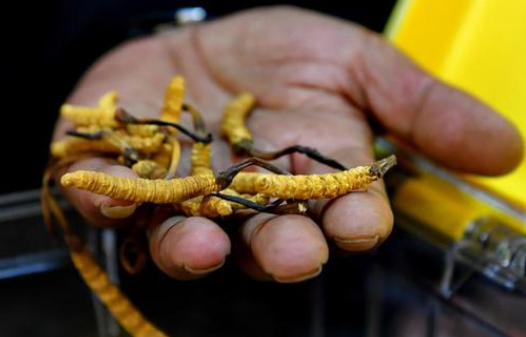Chinese scientists have successfully grown peanuts in Northwest China's high-altitude Qinghai province for the first time, local authorities said.
据地方当局透露,中国科学家首次在中国西北部高海拔的青海省成功种植了花生。
In a demonstrative project hosted by the Qinghai Academy of Agriculture and Foresty Sciences, researchers have been conducting trial planting of several crops including ginger and peanuts since March. Five peanut varieties were tested to pick out the best.
在青海省农林科学院主办的一项示范项目中,研究人员从今年3月以来一直在试验种植姜和花生等几种作物,对5个花生品种进行试验以选出其中最好的。
"The peanuts are growing well with few diseases and pests, which proves that peanut planting is possible in greenhouses on the Qinghai plateau," said Huang Pingui, deputy-director with husbandry and poverty relief and development bureau of Huangzhong County.
湟中县农牧和扶贫开发科技局副局长黄品贵表示:“花生长得很好,病虫害少,这证明了在青海高原的温室里种植花生是可行的。”

"The yield per plant is expected to be between 220 and 350 grams, making the peanut yield per mu (about 0.07 hectares) reach at least 500 kilograms," Huang added.
黄品贵补充称:“每株花生的产量预计在220克到350克之间,使每亩(约0.07公顷)花生的产量至少达到500公斤。”
As a warm-weather plant, peanuts usually require a long, hot growing season and loose sandy soil to develop in.
作为一种适合在温暖的气候下生长的植物,花生通常需要一个漫长、炎热的生长季节,以及疏松的沙土环境。
The trial success of peanut planting marks a breakthrough in agriculture in the barren land of Qinghai province.
花生种植试验的成功标志着青海省贫瘠土地农业的突破。
It offers the farmers another option in greenhouse vegetable planting, and optimizes the structure of the vegetable industry in the region, the local official said.
当地官员表示,这为农民提供了温室蔬菜种植的另一种选择,并优化了该地区蔬菜产业的结构。












